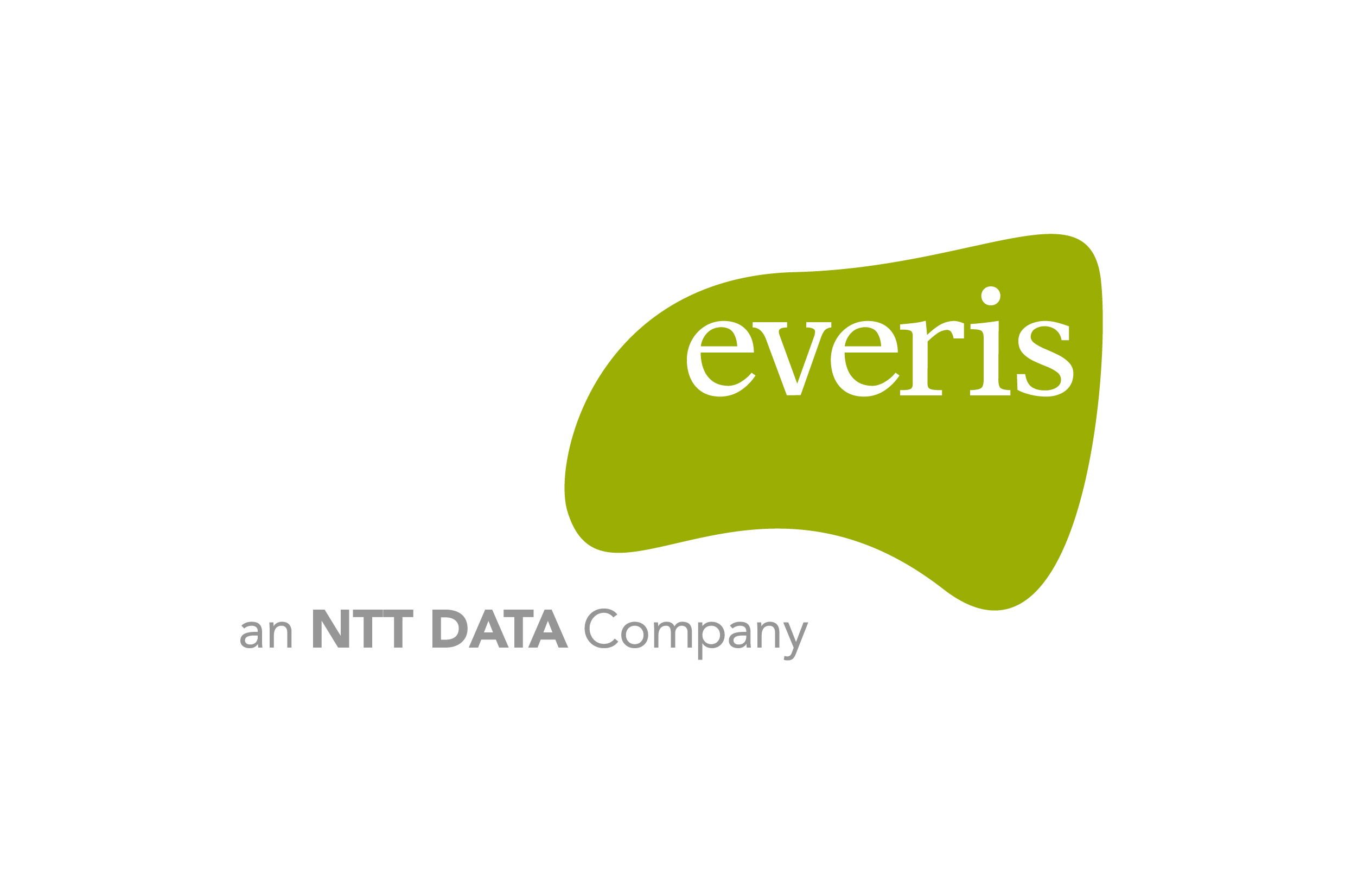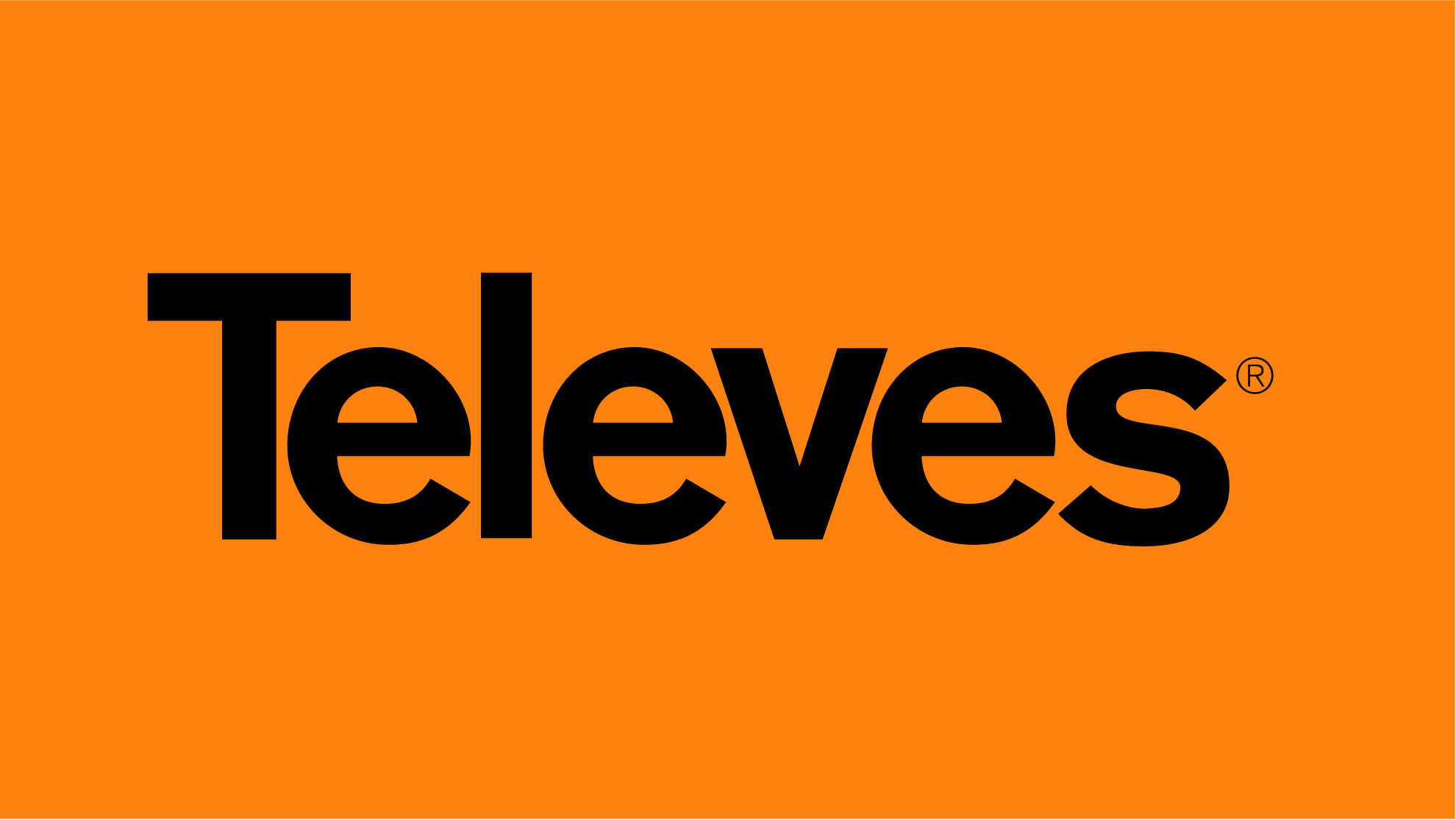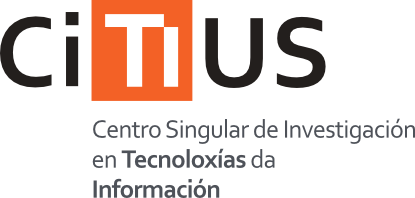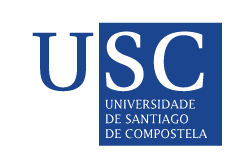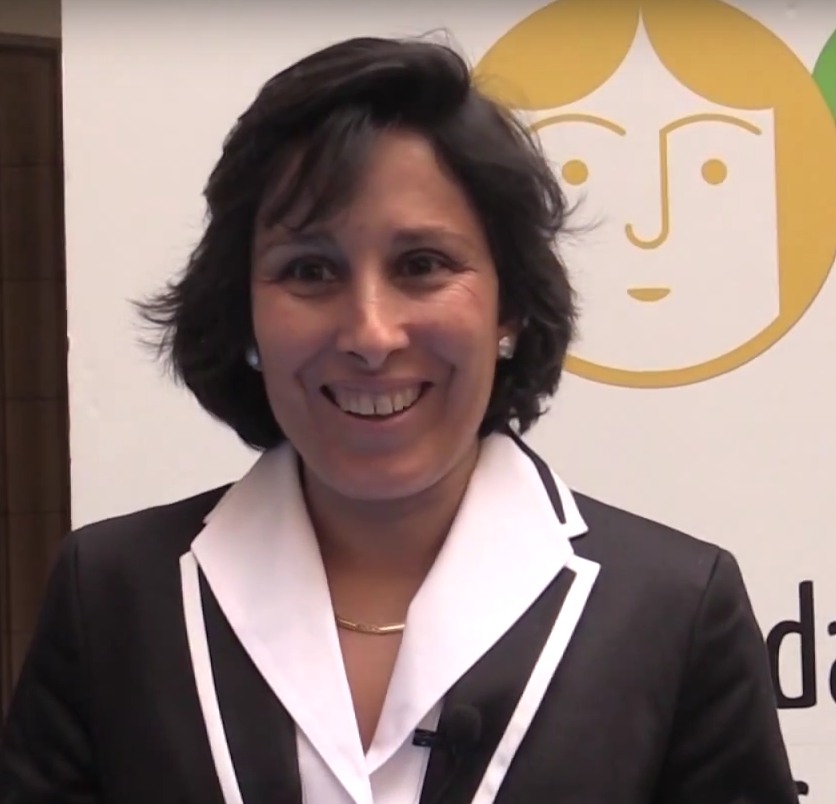 Asunción Gómez-Pérez Universidad Politécnica de Madrid (UPM), ES e-mail: asun@fi.upm.es |
Prof. Dr Asunción Gómez-Pérez is a world-wide known expert on the field of Ontologies, Semantic Web and Linked Data.
Asunción is Full Professor at UPM, director of the Artificial Intelligence Department (2008, -), director of the Ontology Engineering Group (1996, -) and PhD in Computer Science (1993). Before joining UPM, she made a postdoc (1994-1995) in the Knowledge Systems Laboratory at Stanford University where she started to work in the area of ontologies. After that, she returned to Spain and created the Ontology Engineering Group. She is the person that introduced in Spain the ontology topic. In 2015, she was awarded with the Aritmel national price on Computer Science, the 2nd edition of the National Ada Byron price for Woman in IT in Spain,, and the Universidad Politécnica de Madrid distinguished her with the Research Awards in 2015.
She has published more than 300 papers. Her research contributions are highly visible. According to Google Scholar, her h index ois 51,and she has more than 15800 citations. Her book on ontology engineering is a referent book on the field that it is being used in many courses world-wide. She lead the development of the two most well-known methodologies for building ontologies: Methontology and NeOn. These methodologies are widely used by ontologists in academia and industry.
This wide impact on research papers is supported for a long record of international projects and projects with companies. She has coordinated 5 European projects and participated in more than 24 European projects since FP5 until H2020. She also has a long record of collaboration with companies.
Home page: http://mayor2.dia.fi.upm.es/oeg-upm/index.php/en/teachers/194-asun |
 Laura Po University of Modena and Reggio Emilia, IT e-mail: laura.po@unimore.it | Dr. Laura Po is an Associate Professor in the University of Modena and Reggio Emilia. She has obtained a Ph.D. in Computer Engineering and Science from the University of Modena and Reggio Emilia on 13th February 2009, within the INFORMATION AND COMMUNICATION TECHNOLOGIES (ICT) School. She has received Magna cum laude "Laurea" degree in Computer engineering from the University of Modena and Reggio Emilia on 17th February 2005. She is author of over 20 publications in journals and proceedings of national and international conferences, and national and international book chapters. She has participated in national and international research projects: MIUR Project [2004-2006]: WISDOM; FIRB Project [2006-2008]: NeP4B; IST FP6 STREP project [2006-2008]: STASIS, 'Searching a needle in amounts of data ! ' project [2009-2010]: a project funded by Fondazione Cassa di Modena; IC1302 COST Action [2013-2016]: "KEYSTONE Semantic keyword-based search on structured data sources". She has been a reviewer for several international journals in the field of information and knowledge management. She has been selected as external reviewer for ERC Consolidator Grant in 2014. Her research interests are data integration, automatic extraction of metadata, semantic Web, description logics, probabilistic mapping, annotation, disambiguation of semi-structured data sources, recommendation systems, linked data, open government data. Home page: https://www.dbgroup.unimo.it/~po/ |
 Mihai Lupu Vienna University of Technology, AT e-mail: lupu@ifs.tuwien.ac.at |
Mihai Lupu has obtained his PhD from the Singapore-MIT alliance at the National University of Singapore in November 2008. Since then, his work has concentrated on evaluation of domain-specific IR systems. He has been the co-organizer of the TREC Chemical Track, the CLEF Intellectual Property Track and of the Workshop on Patent Information Retrieval. More recently, Mihai is also involved in the Retrieving Diverse Images Track at MediaEval 2014, bringing his expertise on text-retrieval evaluation in close cooperation with colleagues working on image retrieval evaluation. Mihai is currently a post-doctoral researcher at the Vienna University of Technology, where he also lectures on Information Retrieval to MSc students in Informatics and Business Informatics. Mihai is also working as an independent consultant on patent search, having previously collaborated with the European Patent Office and small and large companies in Vienna, Berlin, and Stockholm. URL: http://ifs.tuwien.ac.at/~lupu/ |
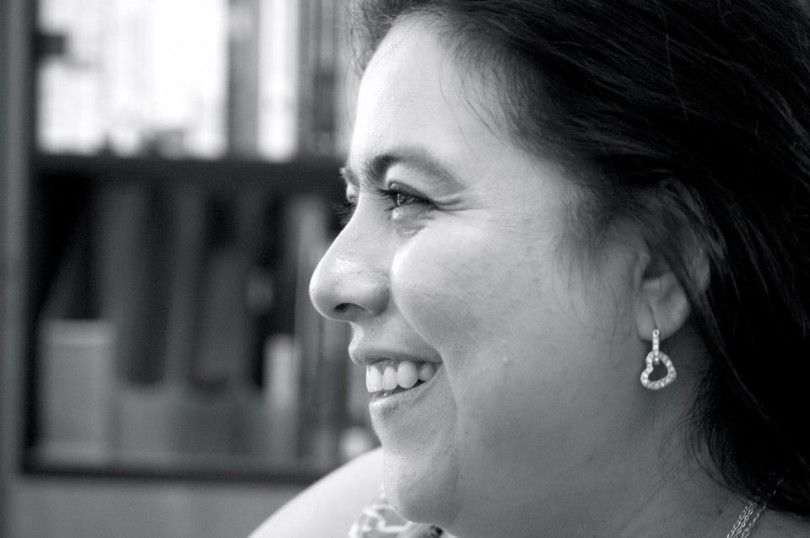 Genoveva Vargas-Solar Research Scientist, CNRS, FR e-mail: genoveva.vargas@imag.fr |
Genoveva Vargas-Solar is senior scientist of the French Council of Scientific Research (CNRS) and she is member of the HADAS group of the Informatics Laboratory of Grenoble, France. She is deputy director the Franco-Mexican Laboratory of Informatics and Automatic Control (LAFMIA). She is regular member of the Mexican Academia of Computing Science.
In 2014 she obtained her Habilitation à Diriger des Recherches (HDR - tenure) from University of Grenoble. In 2000, she obtained her first PhD degree in Computer Science at University Joseph Fourier and in 2005 she obtained her second PhD degree in Literature at University Stendhal. In 1997 she obtained her first Master Degree in Computer Science at University Joseph Fourier and in 1998 she obtained her second Master Degree in Compared Literature at University Stendhal. She did her undergraduate studies on Computer Systems Engineering at Universidad de las Américas in Puebla.
Her research interests in Computer Science concern distributed and heterogeneous databases, reflexive systems and service based database systems. Particularly, she contributes to the construction of service based database management systems. The objective is to design data management services guided by Service Level Agreements (SLA). The purpose is to provide methodologies, algorithms and tools for integrating, deploying and executing a service composition for programing data management functions. Data services composition must respect quality of service criteria (e.g., security, reliability, fault tolerance, evolution and dynamic adaptability) and behaviour properties (e.g., transactional execution) adapted to applications requirements. She conducts fundamental and applied research activities for addressing these challenges.
Her research interests in Literature concern middle age Literature, myths’ critics and myths’ analysis applied to different myths of origins. She has coordinated several research projects in Europe and Latin America financed by governments and industrial partners. She actively promotes the scientific cooperation in Computer Science between Latin America and Europe particularly between France and Mexico. Personal web page: http://vargas-solar.com |
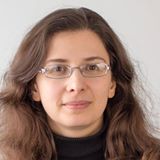 Elena Demidova University of Southampton, UK e-mail: e.demidova@soton.ac.uk | Dr. Elena Demidova is a senior research fellow at WAIS at the University of Southampton. She has been a post-doctoral researcher at the L3S Research Centre in Hannover, Germany. She received her Ph.D. degree from the Leibniz Universität Hannover (Germany) in 2013 and her M.Sc. from the Universität Osnabrück (Germany) and the University of Twente (The Netherlands) in 2006. Her main research interests are in multilingual text processing, data quality analytics, and Open Data. Elena has been involved in leading roles in EU projects, such as ARCOMEM FP7 IP and KEYSTONE COST Action. Her work has been published throughout major conferences and journals, including ACM SIGIR, ACM CIKM, and IE!
EE TKDE,
and she has been a reviewer and committee member for numerous scientific events and publications, most recently including the roles of PC member for the ISWC, ESWC and ACM CIKM conferences and guest editor for IJSWIS. |
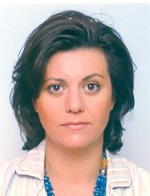 Ranka Stanković University of Belgrade, Serbia e-mail: ranka@rgf.rs | Ranka Stanković is associate professor at University of Belgrade, Faculty of Mining and Geology, where she is teaching several courses related to informatics and geoinformatics. She received her Ph.D. 2009 at the Department for Computer science, Faculty of Mathematics University of Belgrade with PhD theses related to morphological, semantic and multilingual query expansion. She is vice president of JERTEH, Serbian Society for Language Resource and technology Professor and chef of Computer centre in Faculty of Mining and Geology, University of Belgrade and team leader for several national software projects. Her major research interests are lexical resources, semantic web, information systems, database modelling, geoinformation management, open education, and artificial intelligence. Her current research is focused on information extraction and retrieval based on custom components that incorporate knowledge from various language and lexical resources, that includes building several semantic and morphological lexical resources and tools for natural language processing, indexing and query expansion and extension of approach to geodatabases. |
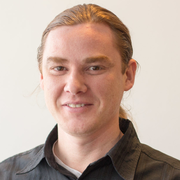 Sergej Zerr University of Southampton, UK e-mail: s.zerr@soton.ac.uk | Dr. Sergej Zerr is a research fellow at WAIS at the University of Southampton. He obtained his PhD degree from the Leibniz University of Hannover (Germany) in 2015. His research is focused on Human-based Computation as well as on Information Retrieval and Data Mining. He has around 20 academic publications covering the topics of Information Retrieval, Social Network Analysis and Gamification based Crowdsourcing. In his recent research he was exploring a wide range of monetary reward schemes that are inspired by the success of competitions, lotteries, and games of luck, he was also investigating, how team mechanisms can be leveraged for further improving the cost efficiency. |
 Mauro Dragoni Fondazione Bruno Kessler, IT e-mail: dragoni@fbk.eu | Mauro Dragoni is a post-doc researcher at the Fondazione Bruno Kessler in Trento since 2011. He received his Ph.D. degree in Computer Science from the Universitá degli Studi di Milano in 2010 and his major research interests concern the Computational Intelligence and Knowledge Management fields applied to the Information Retrieval, Ontology Matching, and Sentiment Analysis topics. In particular, he focuses on applying state of the art research paradigms to the implementation of real-world knowledge management systems. |




